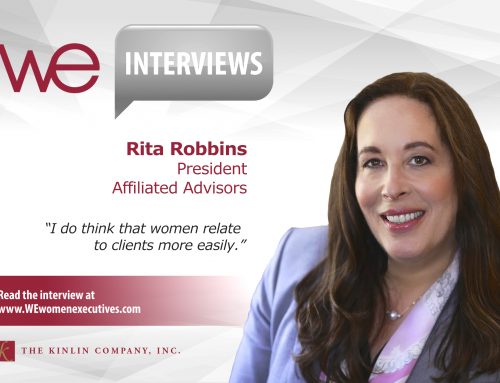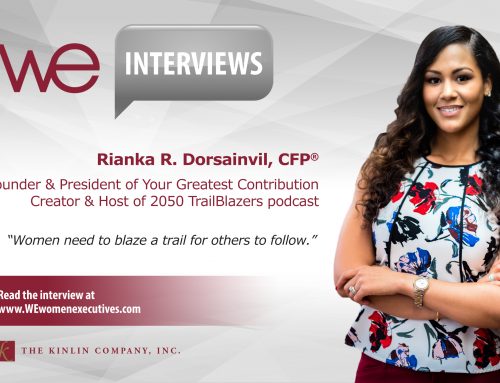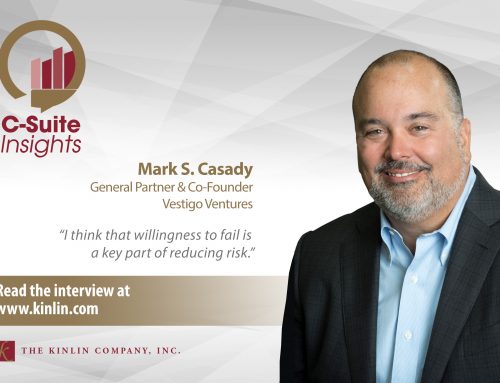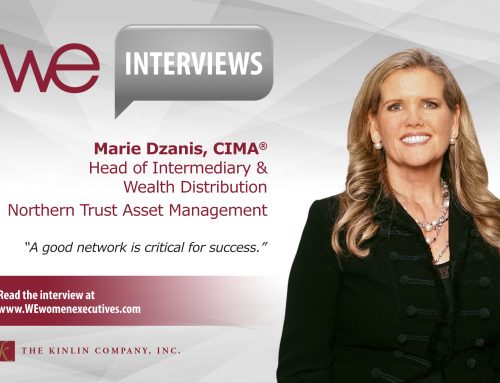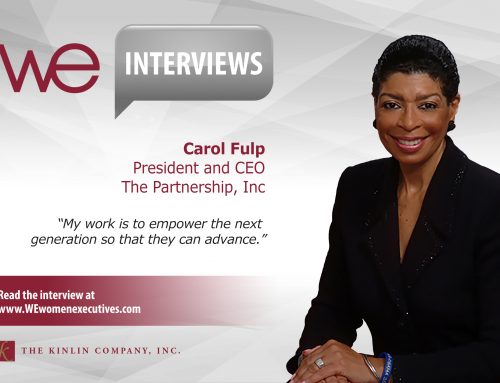 Monica L. Walker
Monica L. Walker
President, CEO & Investment Officer
Holland Capital Management, LLC
Monica Walker is the President, CEO and Investment Officer of the institutional asset management firm Holland Capital Management, LLC, with responsibilities for oversight of the firm and its 24 employees as well as the company’s investment strategies. While the firm’s client base rests primarily in the public pension space, its clients also include corporations, endowments, foundations, unions or Taft-Hartley plans, and sub-advised assets.
I recently had the pleasure of interviewing Walker about her journey to the CEO’s office and the skills she has honed along the way.
A head for numbers
I began our conversation by asking Walker to tell me a bit about the path that led her to Holland Capital’s corner office.
“I was born and raised in Houston and attended college at the University of Texas, Arlington. I liked numbers, so I decided to get an accounting degree. As I was interviewing after graduation, however, I realized I didn’t want to work in public accounting – it seemed too limited and specific – so I decided to work in industry.
“My first job was with what was formerly Texas Utilities Company. I was hired to work in the accounting department of one of the subsidiaries, and luckily the person who hired me acted as a silent sponsor throughout my career there.
“I began with the company in accounting, but ultimately ended my career there in the position of Trust Funds Manager; I was responsible for overseeing the external investment managers and assets associated with the company’s defined benefit and defined contribution plans, and I worked on the company’s Nuclear Decommissioning Trust Fund.
“I actually moved to a different job within the company or its subsidiaries just about every 18 to 24 months. I began by handling the general and the prepaid and accrued taxes ledgers. After a colleague became ill I was offered the opportunity to take over her responsibilities in preparing regulatory filings and reports. I then became the supervisor of the accounting department. Next I worked as a Senior Auditor performing contract compliance audits of major plant construction contractors, including at the company’s nuclear plant construction site. Assignments thereafter included working in corporate finance, which was my most favorite area. As I reflect on it, unbeknownst to me, a silent sponsor and others were guiding my career, because it eventually became clear that they were grooming me with experience to move into higher and/or management positions within the company.
“At one point in time when I was working in the finance department, my office was near that of the person responsible for oversight of the defined benefit, defined contribution, and nuclear decommissioning assets. He was a one-man shop acting as the liaison between external asset managers and senior management. Then he was called away by an executive of the company for a special project. I had always been inquisitive about what he did and spent a lot of time in his office learning about his work. So when he was asked who could perform his responsibilities while he was out on temporary assignment, he suggested me. And I said, ‘I’d love to do it.’ In the end, he never returned to the position and it became a permanent one for me.
“It was while in that position that I had the opportunity to meet Lou Holland, who at the time was with Hahn, Holland, and Grossman. Lou asked to meet with me about potentially hiring his existing firm to manage the various plan assets. I was really impressed with him. One of the reasons that I agreed to meet with him was because he had a very significant presence as one of the only prominent African Americans that I was aware of in the asset management business. I was thrilled to talk to him to learn about his career, his experience, his knowledge, and wanted to find out what he was all about.
“Shortly after that first encounter, he called and said, ‘I want to talk to you again. I know that building a business relationship is a long-term proposition, but I want to offer you another proposition.’ I thought, ‘Okay, what does this guy want?’ But he wouldn’t take no for an answer, so I finally agreed to meet with him. When I did, he said, ‘I’m going to start my own firm, Holland Capital Management, in Chicago, and I want you and two other business women I know to join me as founders of the firm.’ I said, ‘I’m not moving to Chicago. My family lives here, and I’m not going to move out of Texas.’ But he was very, very persistent. We went back and forth until I finally agreed to travel to Chicago to meet the others, see what the city was like, and to hear more about what he was planning to do in this new venture. Eventually, he convinced me, after even meeting with my mother and assuring her, to relocate and in 1991 we started the firm. From day one, he included me in every major decision that we made, and when he retired in 2008, I took over the helm.”
A desire for equality
Having established Walker’s back story, I next turned to her education. What skills and experience helped you the most in getting to where you are now, I asked.
“I believe it goes back to my family upbringing and who I am as a person. I grew up with four brothers, and although I was quiet, at least at the time, I would insist to my mother, ‘We all have responsibilities here – I understand that – but I think to be fair, I have to be treated as an equal.’ For example, I said, ‘The boys are responsible for cutting and raking the yard and trimming the hedges, so I’m happy to clean the house. But everybody eats food in and utilizes the kitchen, so everybody should be responsible for washing dishes, not just me.’ That’s just the way I looked at it. It took some time, but I finally convinced my mother, so everybody had a week during which they had to wash the dishes. Yet, for those who didn’t want to wash dishes during their week, I would offer to do so for a portion of their weekly allowance or other exchanges. It was that kind of interaction and attention to equality and fairness all the time that made me feel good about who I was and how I looked at things.
“When I got into the real world, I knew that there would be differences among people, but I also knew that I wouldn’t have a problem communicating with them or working collaboratively to resolve an issue. While there was quite a bit competition with my brothers, there was also a lot of collaboration and teamwork.
“I was always interested in learning the things that my brothers were involved with, even though they may not have been activities that were traditionally for girls. For instance, I wanted to play every sport they played. We lived in a low-income African American neighborhood where many families had large lots. We had our own home-made basketball court, football field, baseball diamond, etc. Boys from the neighborhood would come to the Walker house to play, and I wanted to be a part of the activities. So I would go out and practice basketball, shooting hoops by myself, honing my skills, in hopes that if they were playing a game, they just might let me play. Or I would serve as a utility person during the baseball games. I didn’t care if I had to catch for both teams and that they didn’t want me to bat; as long as I was out there with the guys, I was okay. I was willing to do whatever was needed to be part of the team. As I grew older, I developed my own interests at school and became involved in music, but those early days of working and competing and interacting with my brothers really prepared me to work collaboratively and effectively with others, particularly men.”
Recognizing the important role that family played in her development, I quizzed Walker a bit more. Were there any other factors from her early years that had helped to shape her professionally, I inquired?
“My parents believed in family, church, and education, and because I liked learning, I was inquisitive in all of those areas. My natural curiosity made me more confident about trying new things, a quality I believe has served me well as a woman in the workforce.
Also, my natural father died when I was 10 years old, and my mother was faced with the responsibility of taking care of us, so even though I had a wonderful childhood, that event caused me to grow up very quickly. I realized that I had to take care of myself because anything could happen. It made me more determined to succeed at whatever I did. I had the attitude that if I wanted to try something and I worked hard enough at it, I could do it.
“I also feel fortunate to have met a person as dynamic and successful as Lou Holland. He gave me the opportunity to learn and be a part of a team, and was a great mentor to me. He was inclusive from the very beginning; he listened to and respected what I had to say and showed me that he valued my opinion. He also shared his past mistakes with me and gave me the opportunity to make my own so that I could learn, move forward, and not make those same mistakes again. He was a mentor and a sponsor whose trust in our relationship gave me the confidence to build in others.”
Walker’s mention of mentors and sponsors offered the perfect segue to my next question. Are you mentoring anyone, I asked, and if so, how did the relationship evolve?
“In my daily work and activities, I run into people external to our firm who ask for advice, and I always try to find time to talk to them. I do some soft mentoring as well as role modeling where I can, opportunistically building relationships with individuals that I feel I can help.”
A joy in involvement
Walker’s investment in others led me to my next question, which focused on the many plaudits she has received; she has been named a “Woman of Excellence” by The Chicago Defender; nominated as one the “Top 100 Women to Watch” by Today’s Chicago Woman magazine; recognized as one of Chicago United’s Business Leaders of Color; and celebrated as one of Black Enterprise’s “75 Most Powerful Blacks on Wall Street.” How do you feel about this recognition, I asked, and does it affect you?
“I don’t mean to be dismissive, but sometimes I look at these awards and think, ‘There are not that many African Americans that have attained a certain level of achievement as defined by Wall Street, so although to be a woman that’s part of the group and to be acknowledged is great, the overall universe of African Americans and/or those of color in the asset management business is quite small. The numbers need to improve.’ Nevertheless, at our firm we strive for excellence in everything we do, which we hope is recognized in the marketplace, and I strive to be the best that I can be, too.
“So yes, I’m thankful that I have been recognized individually, but being among a group of peers who I respect and esteem is nice as well. In addition, I am generally able to connect with others and consequently the recognition may result in being considered for future opportunities or for help moving something forward. I try to be open to all of that.
“Lou used to say that every meeting is a good meeting, no matter who you work with, and it’s true. Any time you meet someone, you can learn something you didn’t know before or establish a relationship. Even if you never talk to that person again, it’s an experience that becomes part of you moving forward. I’ve become a better listener and a better presenter, and my intuitive skills have increased just by taking that approach.”
Having spent a bit of time discussing the ways in which Walker has grown both personally and professionally over the course of her career, I wondered aloud if there were lessons she might be willing to share with other women who are currently struggling to make it to that CEO or president’s position, or perhaps onto a board?
“Be yourself, but also maintain a sense of self-awareness. It’s important to be authentic, but do it in a way that’s beneficial not only to you but also to those around you. And have your own voice and be willing to share it. Nobody’s going to do it for you.”
As our time together drew to an end, I asked Walker to look ahead a bit. What’s your biggest challenge for 2017, I inquired?
“We have layers of generations in our firm, and I believe that part of being a good leader is recognizing that and understanding that remaining static is not an option. I want to be part of the growth of the firm, not a cog in the growth, which means that I have to get out of my own way and understand that we change and the world changes. To grow, I must be inclusive and look toward a future that may be quite different than what it was when I started in my career.”


